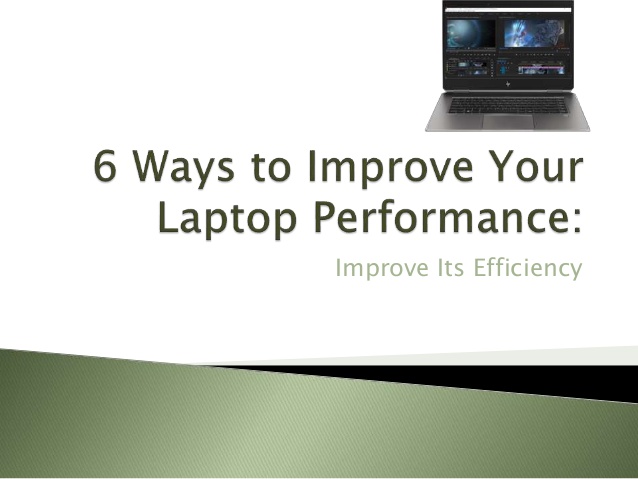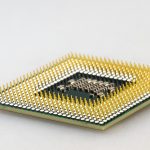Table of Contents
How to Improve the performance or execution of your Laptop or system/Laptop or system?
All laptops or systems will inevitably experience slower speeds at any point. As software or pro-Random Access Memory (RAM) becomes more demanding, How to Speed up Computer the way one personal computer reacts to these changes can affect its performance or execution. The OS one has and whether one has chosen to upgrade to Windows X can also make a significant difference.
While one can improve one laptop or system to make it run even faster, some enhancements are more expensive and straightforward to do. These minor modifications may not seem like they will speed up oner laptop or system performance or execution. Still, combined, they can make it possible to keep oner PERSONAL COMPUTER functional for a No of years.
There are also many types of tools available to get rid of old documents while locating apps that one doesn’t use often and may want to uninstall. These pro Random Access Memory (RAM)s or software can also alert one to files and software that may be the reasons for a slow laptop or system and may ultimately be worth deleting.
Here are seven ways one can improve laptop or system speed and its overall performance or execution.
1. Uninstall unnecessary software
Oner laptops or systems come preloaded with several apps that many people will not use but can eat up the system’s resources. How to Speed up Computer One can usually detect these when one sees a popup encouraging one to update a Random Access Memory (RAM) one’ve never used before.
Main points:
- Remove them from oner laptop or system and free up disk space of the one laptop.
- Click on the button that says “Start” and visit the “All Apps” menu.
- Here one can view a list of the apps one has installed – and the ones one hasn’t
- Once one finds the Random Access Memory (RAM) one want to uninstall, right-click on the icon to see the “Options” menu
Or, one can right-click on Start and visit Random Access Memory (RAM)s and Features. Windows assistant Cortana can also be assist because it can perform a search for “Random Access Memory (RAM)s” in its search box. From there, one’ll find a record of which apps one’s used recently and which take up the most space. After surveying what’s installed, one can decide which Random Access Memory (RAM)s can be deleted to improve system performance or execution.
You’ll also want to know which RAMs are required for a laptop or system to run correctly and even discarded. These apps slow down oner PC because they often start up automatically. When one boots up its computer or network, it boots up.
If one isn’t sure whether one wants these apps permanently erased, one can take an in-depth look at the apps. One intends to remove within the menus, as mentioned above.
2. Limit the Random Access Memory (RAM)s at startup
Along with the same outlines, one can also determine which apps run when one PERSONAL COMPUTER boots up. Windows X has an updated Task Manager. That makes it easier to decide what one wants running in the background and what one can start on their own. How To Block Sites
Main Points:
- To entrance Task Manager, click Ctrl-Shift-Esc
- A box will seem that lists all the apps one has installed on one laptop or system.
- It also gives one a detailed account of the amount of RAM each RAM uses when one starts a PC
- To modify, right-click on the application one want to change to tell it not to run until commanded.
One can always change the settings if one notices that a Random Access Memory (RAM) is no longer running. It impacts how one uses a PERSONAL COMPUTER. If in doubt, one can always restart one laptop or system and see how it runs without certain apps.
3.Add more RANDOM ACCESS MEMORY (RAM) to oner PERSONAL COMPUTER
In terms of memory usage, How to Speed up Computer Windows X uses less Random Access Memory than previous versions. Still, increasing RANDOM ACCESS MEMORY (RAM) memory has been a tried-and-true way to speed up devices for years.
A bit of detail:
If one has a convertible or detachable laptop or system, you’ll likely need to settle for what came in the box. Some business and gaming laptops or systems make it possible to add RAM, but it can still be tricky.
It’s much easier to add more RANDOM ACCESS MEMORY (RAM) to desktop laptops or systems, and it’s much cheaper, too. Anyone with a basic idea or concept of a desktop tower’s interior can install more RAM in an hour.
One can also take an oner laptop or system into a professional shop to have more RANDOM ACCESS MEMORY installed. You’re worried about potentially compromising the oner system or doing this incorrectly, then having a judgment from someone who recognizes can ease the mind and make adding extra memory easy.
4.Check for spyware and viruses
It’s almost difficult not to pick up a virus at some point while browsing the net. Still, the new Windows Defender software or program has made it more relaxed than ever to find malware or virus. That may be causing significant issues on your PERSONAL COMPUTER. How to Speed up Computer Third-party Random Access Memory (RAM) is also easy to install and can help remove any malware.
Details:
Some apps or applications are better than others. Some can take up more space, which can then cause issues with speed. Ideally, one wants to find efficient software and remove malware altogether. However, that doesn’t take up too much space on your PERSONAL COMPUTER.
Consider installing two types of software for laptop or system performance or execution monitoring. Malware cleanup Random Access Memory (RAM)s can solve lagging or blatant issues with speed or popups. However, one should also look into apps that offer ongoing protection and run in the background. Again, keep in mind that these antivirus Random Access Memory (RAM)stake up space. So, one wants to choose one designed not to affect performance or execution.
A little research can help one find the software that works within one budget or on a specific operating system. There can be compatibility issues if one downloads free software. How to Speed up Computer So, double-check everything before installing it to avoid additional performance or execution problems.
5. Use Disk Cleanup and defragmentation
Every laptop or system has a No of files and programs Random Access Memory (RAM) on its hard drive. That hasn’t been recycled in a while or is pointless. Disk Cleanup allows one to find which apps and files can be deleted from the laptop. How to Speed up Computer It can free up drive space for the Random Access Memory (RAM) one will use.
It is extremely easy to DC (access Disk Cleanup).
- From the Cortana search box or Start button, one is sent to the Random Access Memory (RAM)
- A fast scan displays the short-term files, installer applications, and web sheets. The one that one has not used or no longer needs.
- From there, it will inevitably remove them and clear up some space.
Disk Cleanup’s usefulness depends on how much RANDOM ACCESS MEMORY (RAM) one has on a PERSONAL COMPUTER. It can also cause a laptop or system to run slower than it usually would. It may be a decent idea to install more RANDOM ACCESS MEMORY on an oner device in this situation.
One should also schedule disk defragmentation on a semi-regular basis to know how much hard-drive space one has. Windows has an Optimize Drives tool, which one can access from the Start button or oner Cortana search box. There are also No third-party Random Access Memory (RAM)s that can help clear out files that one doesn’t use anymore.
6. Consider a startup SSD
When one needs better execution, a solid-state drive (SSD) can go far to take the weight off the CPU. One PC or framework boots up the other. If one runs any of the applications or uses the photograph/video altering programming, an SSD can make it faster.
A bit more:
They’re most usually introduced on work area PC or frameworks. SSDs can be utilized on some PC or framework models. When one doesn’t choose to use an inside SSD, one can generally buy an external drive that interfaces with a PC. This drive can give one the additional push one needs at startup. You can achieve undertakings and give one a lift for applications that require more impermanent memory to run appropriately.
One can locate a No of SSD alternatives that work inside one financial plan contingent. It tells how one utilizes a PERSONAL COMPUTER. Capacity audit locales online can be significant wellsprings of data when picking the correct drive for oner PC or framework. One needs to realize that it is viable with an oner working framework.
In summary
One encounters issues stacking applications or essentially managing moderate PC or framework execution. It generally takes some minor adjustments. Make it run all the more productively.
Try to verify twofold whether there is malware, spyware, or an infection causing slacks or moderate rates. Onward, one can explore what else may cause any issues to accelerate, keep up, and check PC or framework execution,










